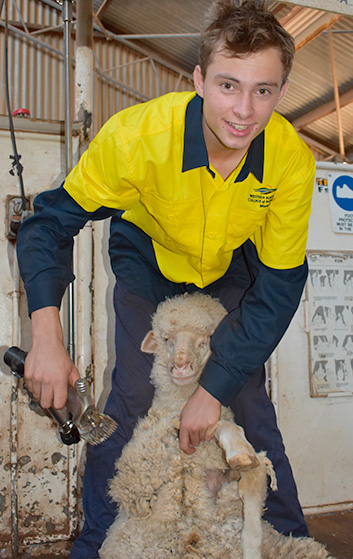
CURRICULUM
Year 11 students are streamed into ATAR, General or Foundation levels according to their levels of achievement and OLNA results from Year 10;
English
Foundation
This is a consolidation of skills required in order to achieve graduation.
General
This subject is suited to students seeking a path to employment or further study at TAFE and where possible concentrates on life and work related communication skills. Every endeavour is made to make the course content relevant to students needs.
Or
ATAR
Students who have the desire and ability to go on to further study may choose this subject which concentrates on communication skills in self expression particularly related to the written and spoken word. Individual abilities and achievements determine the particular pathway a student will take.
Mathematics
Year 11 students are streamed into ATAR, General or Foundation levels according to their levels of achievement and OLNA results from Year 10; In Yr 11 students who have the desire and ability to go on to further study at a higher level will study ATAR level. General maths is suited to those who seek a path to employment, apprenticeships or further study at TAFE and Foundation maths is a consolidation of skills required for graduation. Individual abilities and achievements determine the particular pathway a student will take.
General or ATAR level
This SCSA subject introduces the students to the concept of raising animals as a production system. The environment in which an animal is produced is examined in detail; feeding, stresses due to climate, as well as diseases and social behaviour of animals is investigated in this subject. The importance of bloodlines and genetics is also treated within this context. In this project based course, markets are examined as well as the things needed to produce animals for sale and animal products.
Plant Production Systems (Year 11 & Year 12)
This SCSA subject introduces students to the animal production systems in its entirety; from paddock to plate. Students use the College farm as a resource to collect data, examine the factors required to produce livestock for breeding and various markets. Much of this course is project based with the College farm integrating the theory and the practical application.
General or ATAR levels
These subjects cover both practical and theoretical aspects of crop and pasture production. Understanding of how plants grow in order to maximise production, is the key aim of this course. Environmental factors such as soil, weather and nutrition, as well as types of crops, are covered. Operations which require sowing, maintenance and harvesting crops are given special consideration. Although the emphasis is on broad acre cropping, students have the opportunity within the project work to investigate particular crops of interest.
Automotive
This is a two-year course of study designed for students to learn about servicing and maintaining farm vehicles and machines. It is aimed at students who are interested in mechanics and its application and includes both theoretical and practical components. The practical work of approximately half a day per week is completed in the auto workshop area and supplements the students activities on farm. On satisfactory completion of this course students may be eligible to receive:
Certificate II in Automotive Vocational Preparation
Engineering
This is a two-year practical course of study designed to give students the opportunity to experience aspects of working with building and construction materials in a number of contexts. Learning takes place for approximately half a day a week in the Engineering workshop. The skills learned in this course include welding, concrete work, painting, and general metal fabrication. On satisfactory completion of this course students may be eligible to receive:
Certificate II Engineering Pathways
Agriculture
This subject is designed to provide practical background in principles and operations of a farm. Students spend (on average) 1 day per week on the farm learning and being tested in a structured range of farm skills such as the management of stock, crops and machinery. Demonstrations are given and students are assessed on specific aspects of farm practice. Class work and farm work is coordinated to consolidate the theoretical studies in a practical situation. On satisfactory completion of this course students may be eligible to receive:
Certificate II in Agriculture and/or Certificate III in Agriculture
Equine
The certificate II provides students with a broad introduction to the diverse equine industry. Students completing th course will have the opportunity to develop skills in horse husbandry, riding and management.
Certificate II in Horse Care
